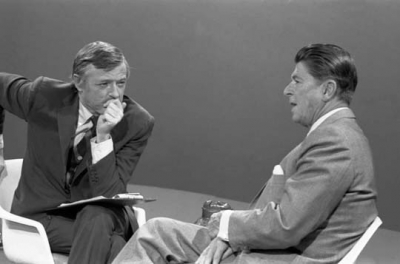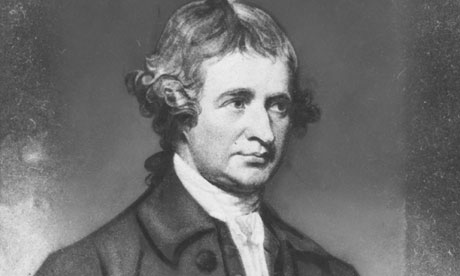Conservative student group Turning Point USA caused a stir last week by posting pages online from a textbook used at the University of South Carolina. The book calls Ronald Reagan “sexist” and says conservatives “take a basically pessimistic view of human nature” — one in which “people are conceived of as being corrupt.”
Videos by Rare
Several avowed conservatives balked not just at the negative portrayal of Reagan but also at the idea that the conservative persuasion contains a measure of pessimism. On this point, the textbook is right and they are wrong.
Russell Kirk was the man credited by William F. Buckley for the very existence of an American conservatism. To Kirk, human fallenness was an essential pillar of conservative thought. He called Original Sin the one empirically verifiable dogma.
“Human nature suffers irremediably from certain grave faults,” Kirk wrote. “To seek for utopia is to end in disaster, the conservative says: we are not made for perfect things.”
This sentiment is shared by the Apostle Paul, who wrote that human beings are “by nature children of wrath,” and by John Adams, who warned us to distrust government because “there is danger from all men.”
If conservatives are offended by this idea, they have forgotten their own inheritance. The conservative intellectual tradition has been challenging progressive assumptions since Edmund Burke assailed the tyranny of Jacobin France.

If conservatism’s answers have been forgotten, then conservatives are doomed merely to attack or water down progressivism without offering a coherent worldview of their own.
Granted, the textbook was discussing the cheerful Ronald Reagan. Yet it correctly specifies a “pessimistic view of human nature,” not of all reality.
Reagan was a temperamentally happy man, but he took a grave view of the appropriate things: the dangers posed by the Soviet Union abroad and by big government at home. It’s precisely because Reagan recognized these evils that he was able to fight them.
A dark view of the human condition is often necessary to yield the brightest results. Imagine you are trying to dissuade a delusional person from leaping off a tall building. The crazed man insists that he can fly. Though your view that he cannot fly would save him from death, his take is clearly more optimistic.
When the Wright Brothers did succeed in flying, it was only because they were not so optimistic as to think they could do so by flapping their arms.
Arguments over gun rights usually involve two scenarios: the home invasion and the tyrannical government. In both cases, the progressive position rests upon an optimistic view of human nature.
Last year, an Oregon woman dialed 911 as a man was breaking into her home to sexually assault her. Because there were no police in the area, the dispatcher offered her some interesting advice: “You know, obviously, if he comes inside the residence and assaults you, can you ask him to go away?”
This statement might sound disastrously naïve, but it was really only the logical, though absurd, conclusion of an argument that liberals routinely make.
Likewise, progressives dismiss as absurd any suggestion that the U.S. government could, even a hundred years into the future, become tyrannical enough to warrant armed resistance.
The left’s trust in government is so unshakeable that this was true even when George W. Bush was president. As they warned of creeping fascism, they still wanted people to give up their guns.
Such faith in the goodness of democracy is historically absurd. In Edmund Burke’s words, “in a democracy, the majority… is capable of exercising the most cruel oppressions upon the minority.”
If conservatives were to rediscover their roots, they could counter the loony left on both counts. Self-defense is paramount if people are “by nature children of wrath.” Democracy is fallible if “there is danger from all men.”
Science adds heft to the conservative position here. We now know, for instance, that testosterone acts to reduce empathy.
Burke likely would have agreed with the controversial textbook’s assessment. He said “there is no safety for honest men but by believing all possible evil of evil men.”
We have good reason to channel Burke today. If Americans come to see government and its goals as susceptible to human imperfection, then conservatism will win handily. If that’s pessimism, we need more pessimism.



